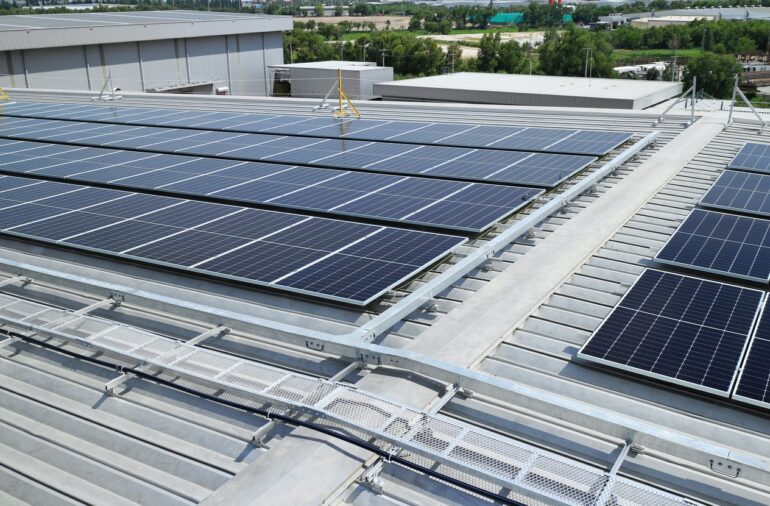Solar power systems are becoming increasingly popular as a means to generate clean, renewable energy and reduce dependence on fossil fuels. There are three primary types of solar power systems: grid-tied, off-grid, and hybrid systems. Each of these systems has its own set of advantages and disadvantages, making them suitable for different applications and situations. We will explore these three types of solar power systems in detail, discussing their characteristics, benefits, and drawbacks.
Contents
Grid-Tied Solar Power Systems
A grid-tied solar power system is connected to the main electrical grid, allowing homeowners and businesses to use solar-generated electricity in conjunction with electricity supplied by the utility company. When the solar panels produce more electricity than is needed, the excess power is fed back into the grid, and the utility company may provide credits or payments for this excess energy.
Advantages:
- Lower initial investment: Grid-tied systems are generally less expensive to install because they don’t require battery storage.
- Net metering: Homeowners can receive credits or payments from the utility company for excess energy fed back into the grid.
- No need for battery storage: The grid acts as a backup power source when solar production is low or nonexistent.
Disadvantages:
- No backup power: In the event of a power outage, grid-tied systems typically shut down to protect utility workers, leaving the home without electricity.
- Dependent on the grid: The system relies on the grid for backup power, making it less suitable for remote or off-grid locations.
Off-Grid Solar Power Systems
Off-grid solar power systems are completely independent of the main electrical grid, making them ideal for remote locations or situations where grid connection is not feasible. These systems use battery storage to store excess solar energy, which can be used during periods of low solar production or at night.
Advantages:
- Energy independence: Off-grid systems provide complete independence from the utility grid, making them ideal for remote locations or those seeking self-sufficiency.
- Backup power: Battery storage ensures a continuous supply of electricity, even during power outages or periods of low solar production.
- No utility bills: Off-grid systems eliminate the need for utility bills, as all electricity is generated and consumed on-site.
Disadvantages:
- Higher initial investment: Off-grid systems require battery storage, which can significantly increase the cost of the system.
- Limited energy supply: The system’s energy supply is limited by the capacity of the battery storage and solar panel production, potentially requiring energy conservation measures.
- Maintenance: Battery storage systems require regular maintenance and eventual replacement, adding to the overall cost of ownership.
Hybrid Solar Power Systems
Hybrid solar power systems combine the best of both grid-tied and off-grid systems, offering a connection to the electrical grid while also incorporating battery storage. This allows homeowners to use solar-generated electricity, store excess energy in batteries, and draw power from the grid when needed.
Advantages:
- Backup power: Hybrid systems provide backup power during grid outages, thanks to the battery storage.
- Energy independence: Homeowners can choose to use solar-generated electricity, stored battery power, or grid electricity, depending on their needs and preferences.
- Net metering: Like grid-tied systems, hybrid systems can take advantage of net metering programs, receiving credits or payments for excess energy fed back into the grid.
Disadvantages:
- Higher initial investment: Hybrid systems are more expensive than grid-tied systems due to the inclusion of battery storage.
- Maintenance: Battery storage systems require regular maintenance and eventual replacement, adding to the overall cost of ownership.
Bottom Line
In conclusion, grid-tied, off-grid, and hybrid solar power systems each offer unique advantages and disadvantages, making them suitable for different applications and situations. By understanding the characteristics of each system, homeowners and businesses can make informed decisions about which type of solar power system best meets their needs and preferences.



